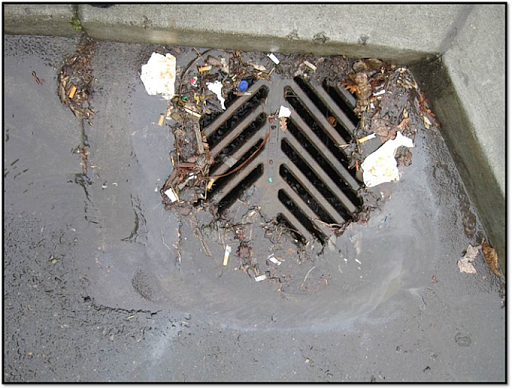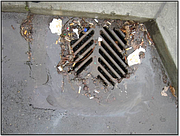Our Gem: Keep your butts out of the water
November is typically the rainiest month of the year in Coeur d’Alene. That also means our storm drains are put to the test each fall.
Storm drains are meant to help remove rainwater from streets and highways to reduce flooding, prevent vehicles from hydroplaning and in winter, minimize standing water that can freeze.
Most people understand that they are meant to improve the safety on our roadways. But where does all that water go? Some of it is routed to swales which allow water to percolate into the ground, but the majority of stormwater in Coeur d’Alene goes directly into our Lake and River WITHOUT FILTRATION. If you look closely, you’ll likely see a “No Dumping, Drains to the Lake” reminder stenciled near many storm drains.
Because stormwater is not filtered, or sent to the wastewater treatment plant, whatever is on the sidewalks and road is washed into our waterways during rain and snow events. Polluted runoff is one of the greatest threats to clean water in the U.S. There are many culprits to polluted stormwater, such as sediment, oil, chemicals, fertilizers, pesticides, pet waste and litter, just to name a few. One of the most common pollutants in stormwater is also one of the smallest — cigarette butts.
Cigarette butts account for about 30% of all litter collected in the United States. It is estimated that 4.5 trillion cigarette butts make their way into the environment every year, making them the most common form of plastic litter in the world. Although they look like cotton, which is biodegradable, they are not and in fact, they have a lot of icky chemicals in them that can leach into our environment.
Cigarette butts are composed of cellulose acetate which is a non-petroleum-based plastic. Under perfect biological conditions, cigarette butts can break down, but most that are tossed onto streets and beaches can take up to 10 years to disappear from the environment. The sun can break down the butt into tiny pieces of plastic that end up in our waterways and impact water quality. It is estimated that up to 300,000 tons of microplastic fibers are entering our waterways annually from discarded cigarette butts.
Aside from not being readily biodegradable, cigarette butts also pollute our waters and soils. Cigarette filters are specifically designed to absorb vapors and to accumulate particulate smoke components. Cigarette butts can contain toxic substances such as nicotine, tar, pesticide residue, arsenic and metals. These toxic substances can leach into the soil and water.
Studies have found that cigarette butts can have significant impacts on aquatic organisms. Smoked cigarette butts have also been found to be acutely toxic to both saltwater smelt and freshwater fathead minnows. They can negatively affect the bacterial communities in soil and have detrimental effects on plant growth and germination. Chemicals released into freshwater environments from cigarette butts are lethal to Daphnia, a common water flea, at concentrations of one butt per two gallons of water. This toxicity can negatively impact the entire food web of the lake, because Daphnia are a critical food source for trout in Lake Coeur d’Alene.
Cigarette butts are a small but mighty pollutant that can make their way into "Our Gem," Lake Coeur d’Alene, through storm drains. But they are not the only pollutant. Many different things get washed into our local waterways every time it rains.
Together we can work to protect water quality by educating others, not littering, and picking up any trash you see that might make it into the lake the next time it rains. Clean water starts with you!
• • •
The Our Gem Coeur d’Alene Lake Collaborative is a team of committed and passionate professionals working to preserve lake health and protect water quality by promoting community awareness of local water resources through education, outreach and stewardship. Our Gem includes local experts from the University of Idaho Community Water Resource Center, Coeur d’Alene Tribe Lake Management Department, Idaho Department of Environmental Quality, Kootenai Environmental Alliance, Kootenai County, Coeur d’Alene Regional Chamber and CDA 2030.



